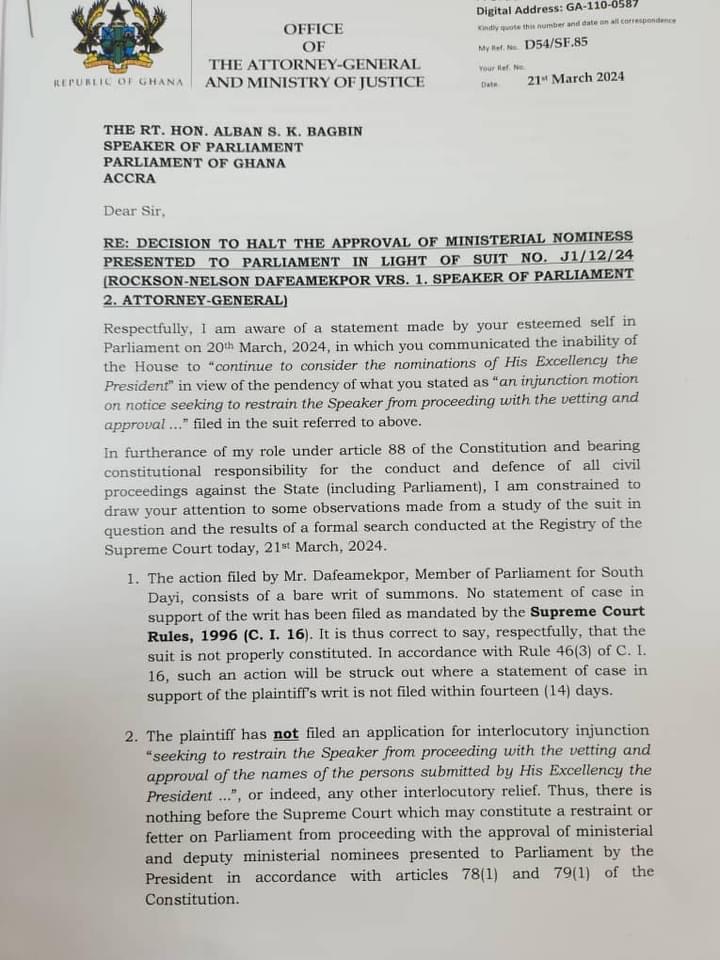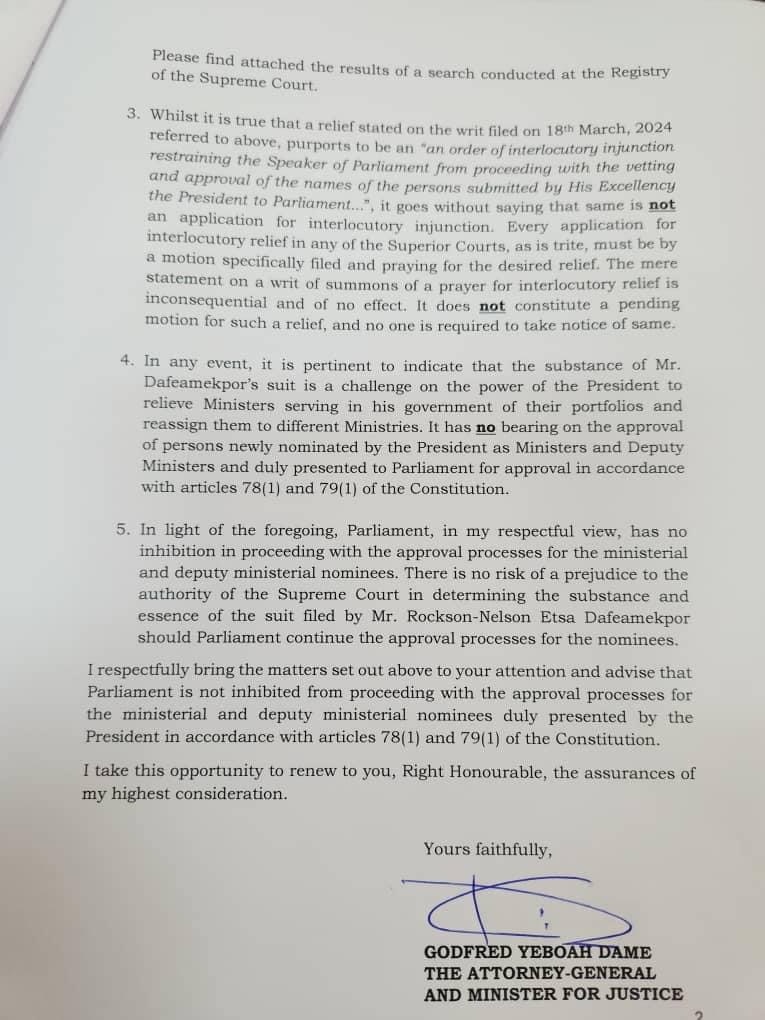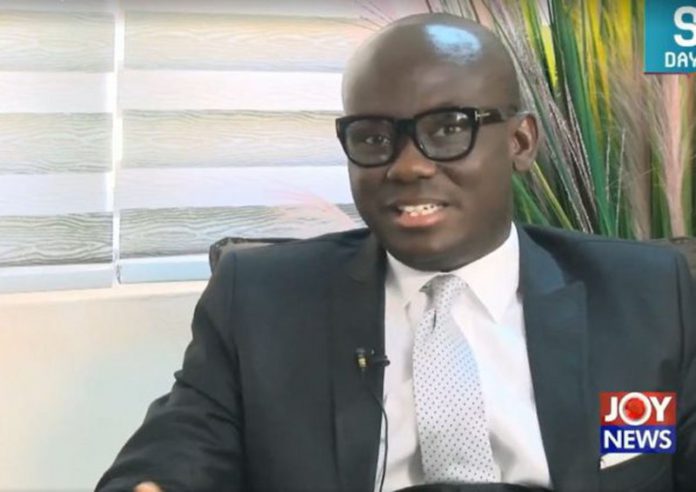The Attorney-General and Minister for Justice, Godfred Yeboah Dame, has refuted claims that he has received an interlocutory injunction in the case brought forth by Member of Parliament for South Dayi, Rockson-Nelson Etse K. Dafeamekpor.
Mr Dame clarified that he has not been served with any legal documents pertaining to such court proceedings.
Parliament, on Wednesday, March 20, halted the vetting process for the nomination of Ministers and Deputy Ministers of State by President Akufo-Addo following an interlocutory injunction filed at the Supreme Court by MP Rockson-Nelson Dafeamekpor.

In his closing remarks to the House before adjourning on Wednesday, Speaker of Parliament Alban Bagbin cited the lawsuit as the reason for the suspension of the vetting process, as it rendered Parliament unable to proceed with the nominations.
“Hon Members, I also bring to your attention, the receipt of a process from the Courts titled Rockson-Nelson Etse K. Dafeamekpor vrs. The Speaker of Parliament and the Attorney-General ( Suit no. J1/12/2024) which process was served on the 19th of March 2024 and an injunction motion on notice seeking to restrain the Speaker from proceeding with the vetting and approval of the names of the persons submitted by His Excellency the President until the provisions of the constitution are satisfied.”

However, in a letter addressed to the Speaker on Thursday, March 21, Mr. Dame disputed Bagbin’s assertion, stating that it was based on inaccuracies as no injunction had been filed.
“The plaintiff has not filed an application for interlocutory injunction seeking to restrain the Speaker from proceeding with the vetting and approval of the names of the persons submitted by His Excellency the President…”, or indeed, any other interlocutory relief.”
“Thus, there is nothing before the Supreme Court which may constitute a restraint or fetter on Parliament from proceeding with the approval of ministerial and deputy ministerial nominees presented to Parliament by the President in accordance with articles 78(1) and 79(1) of the Constitution.”

